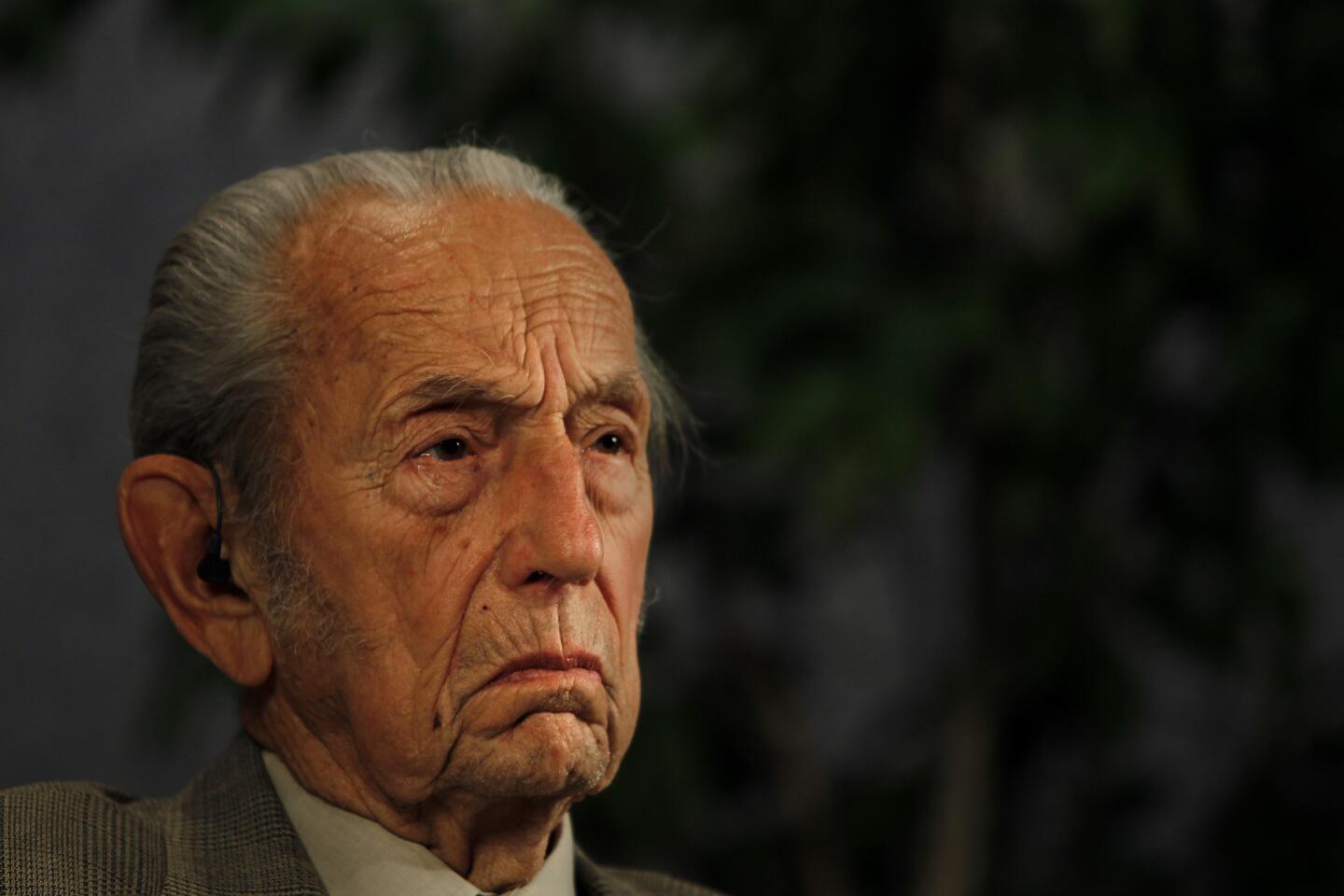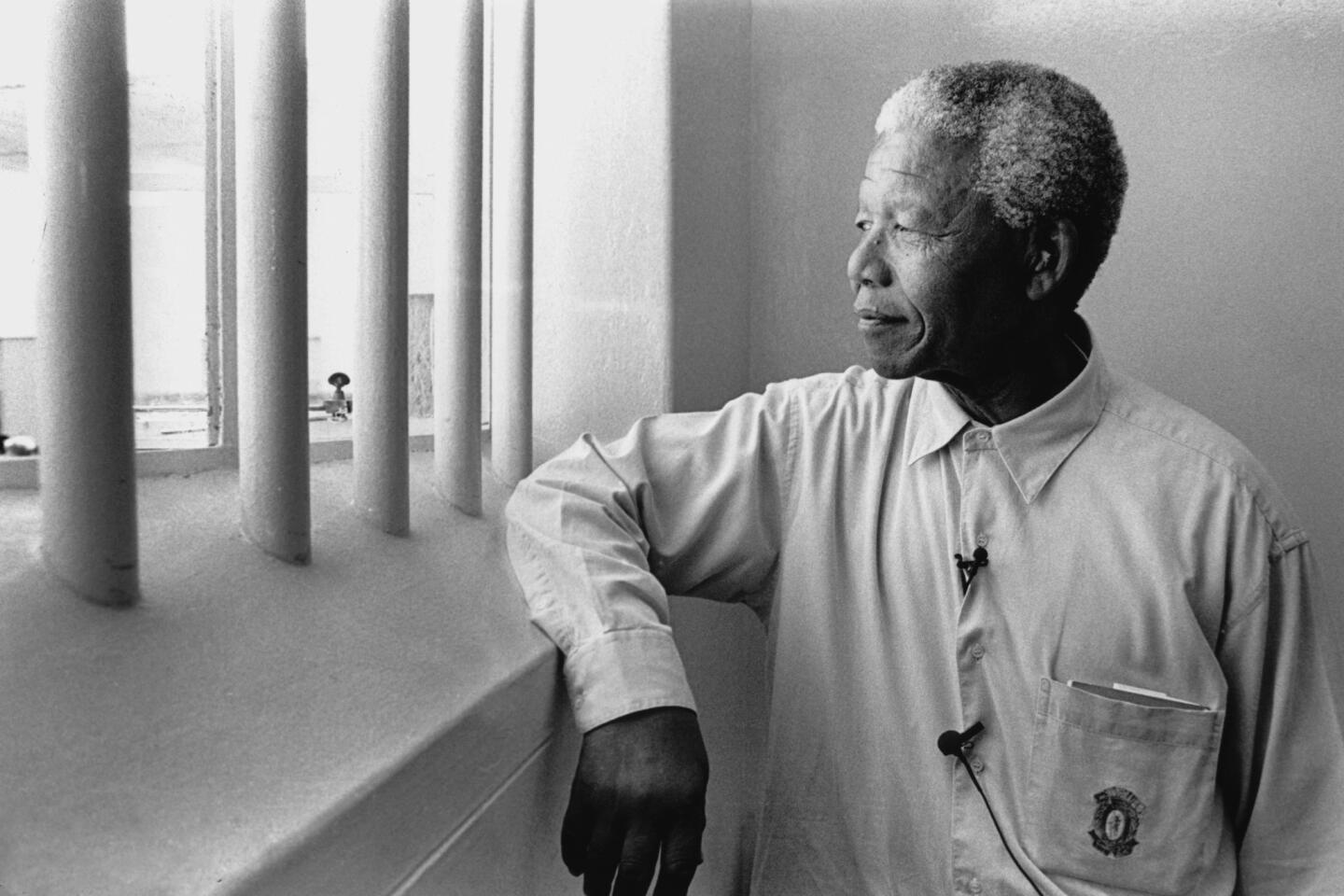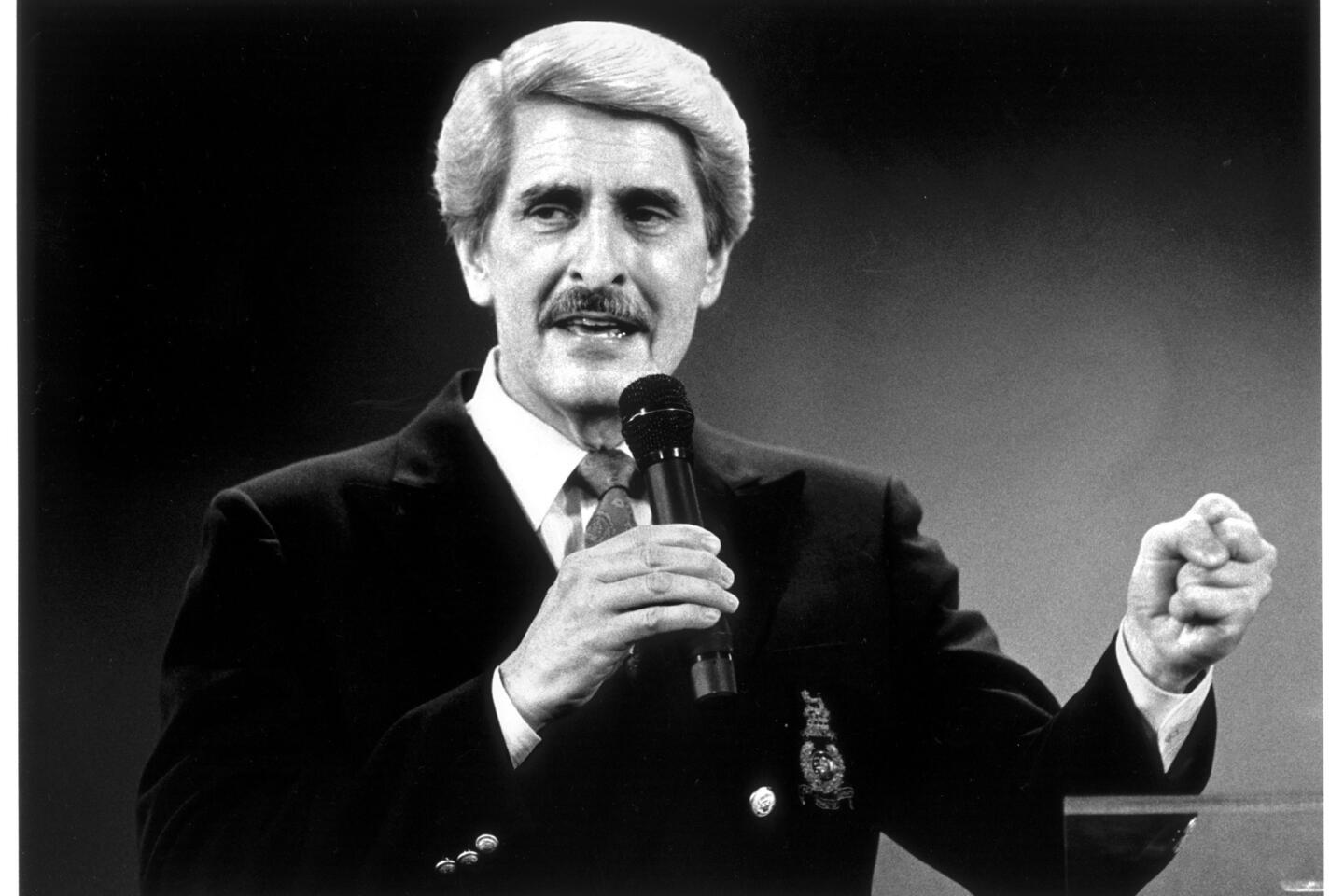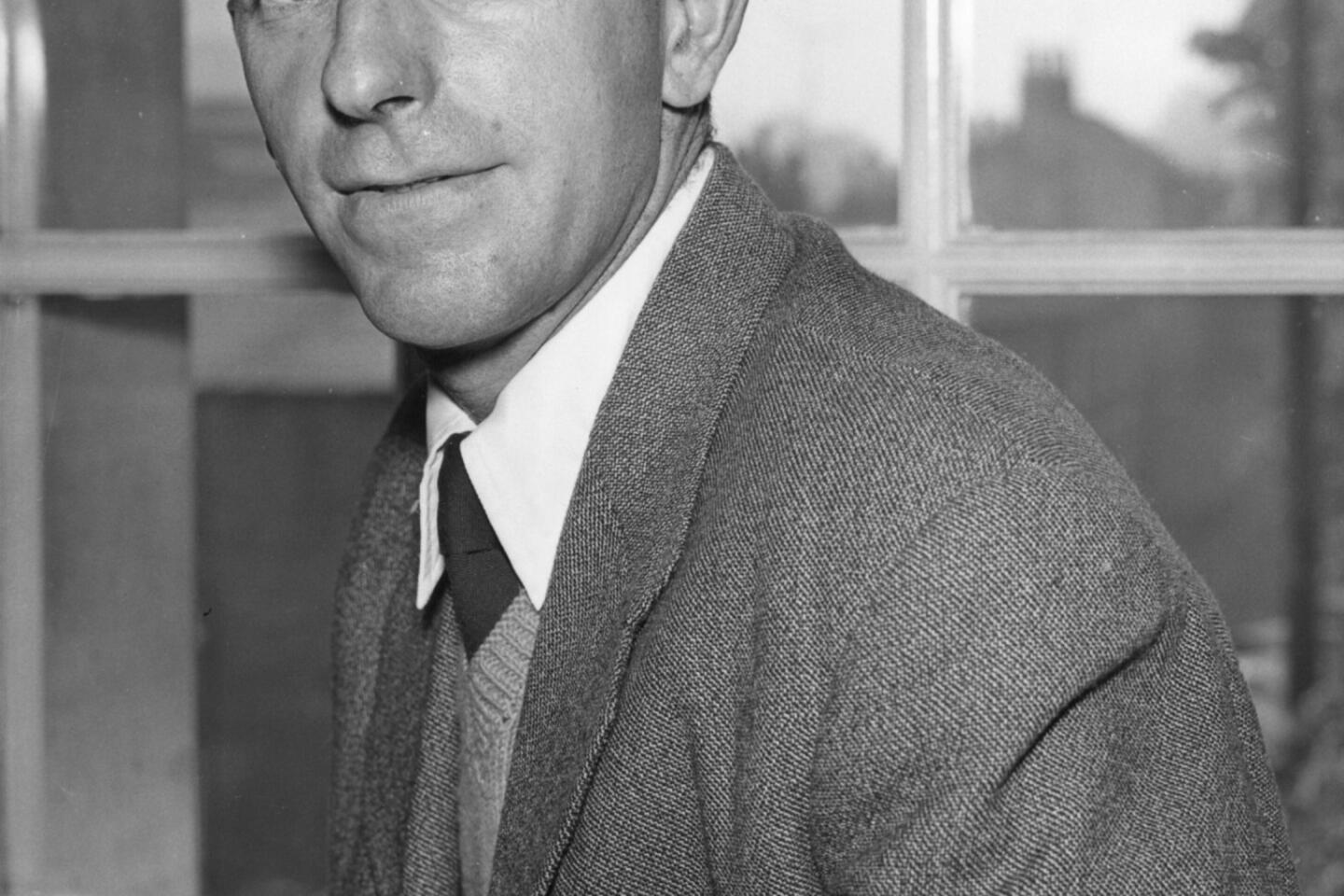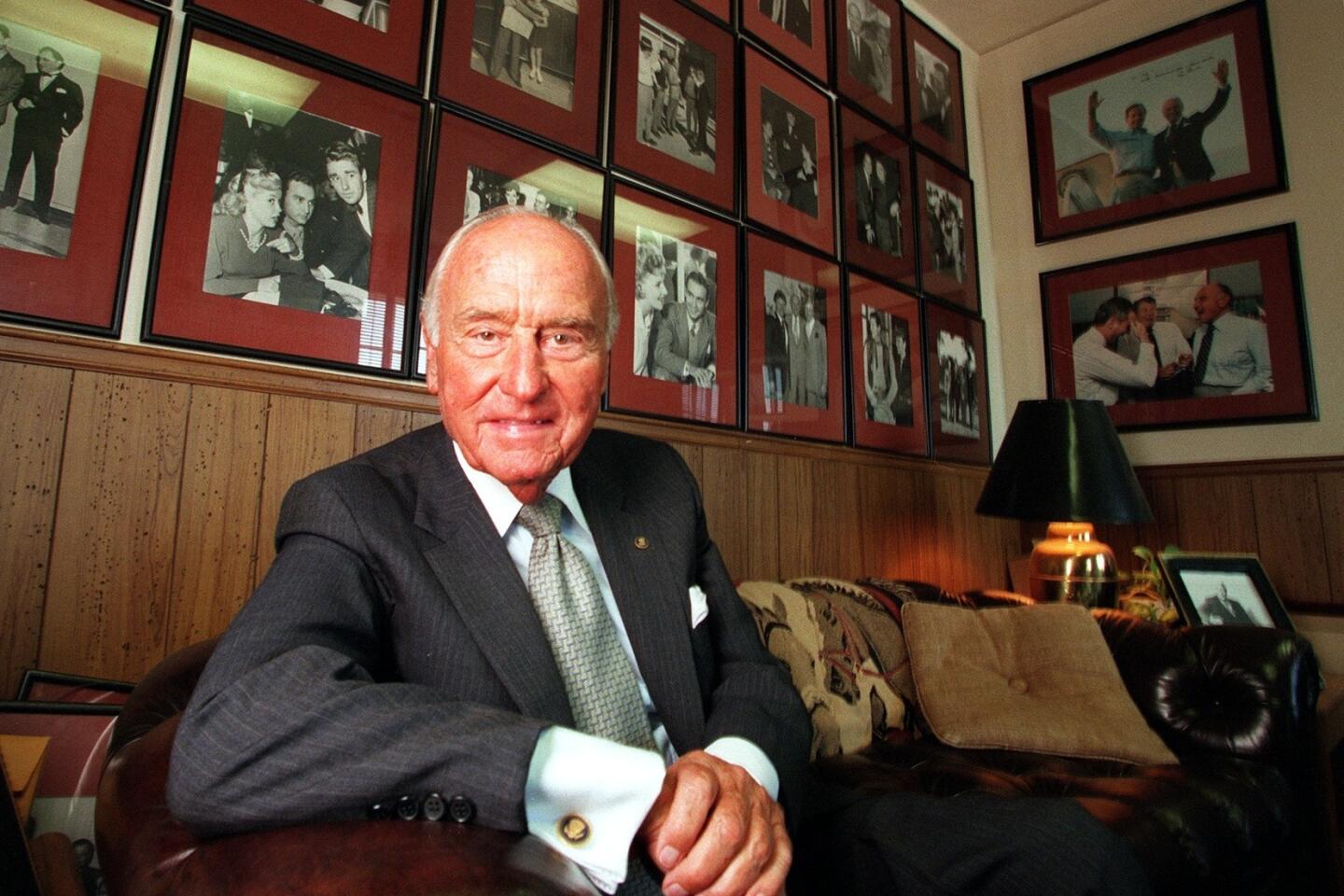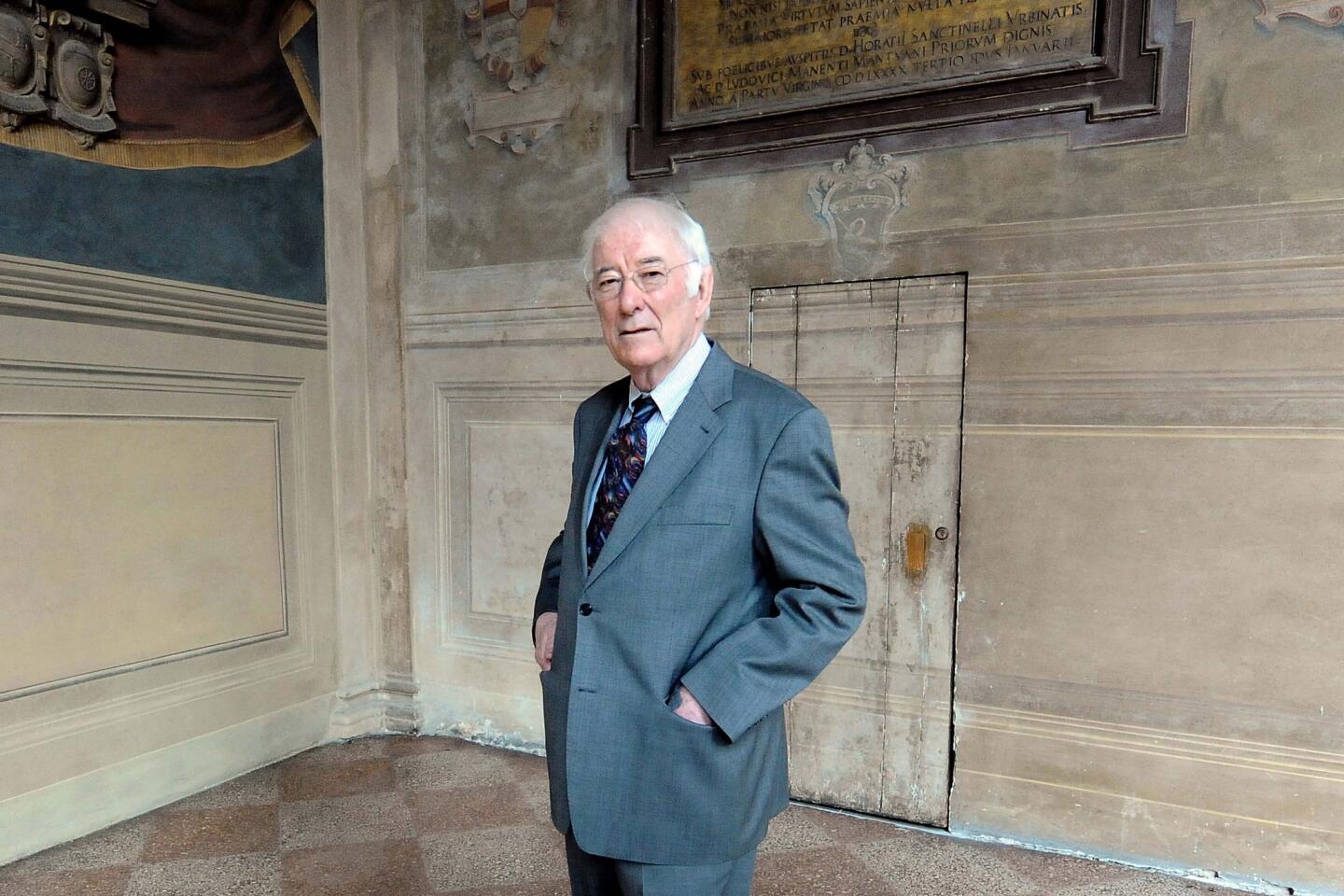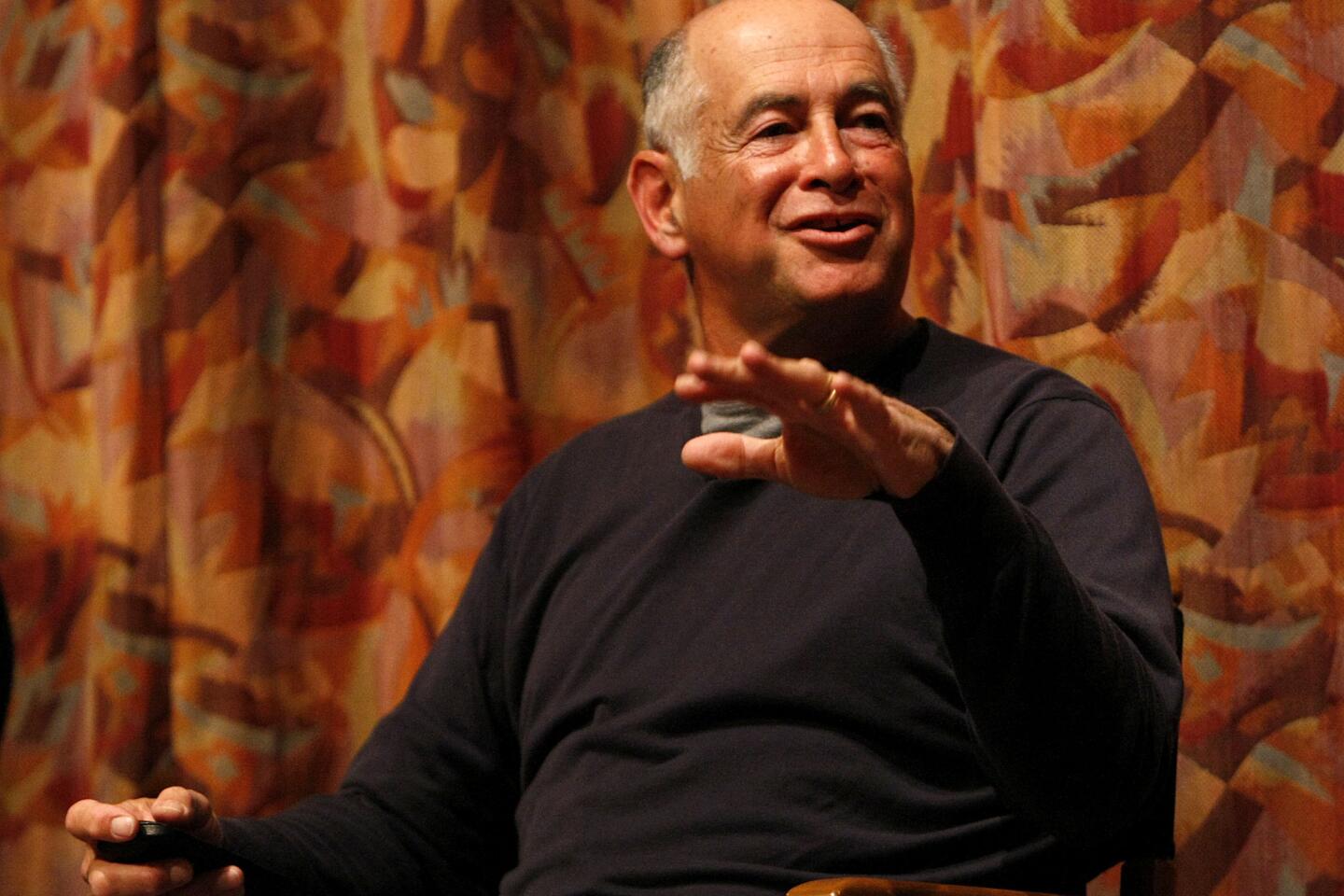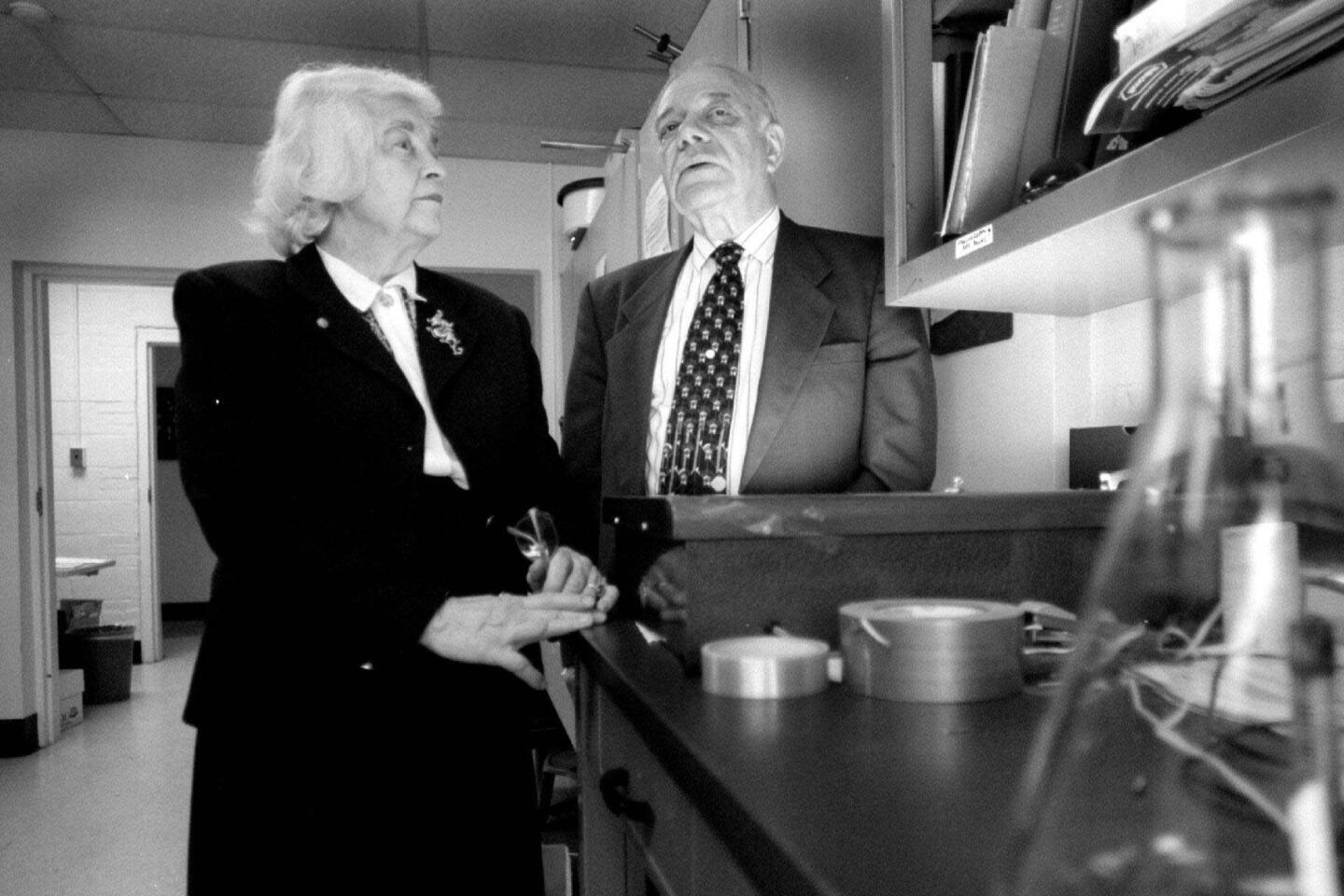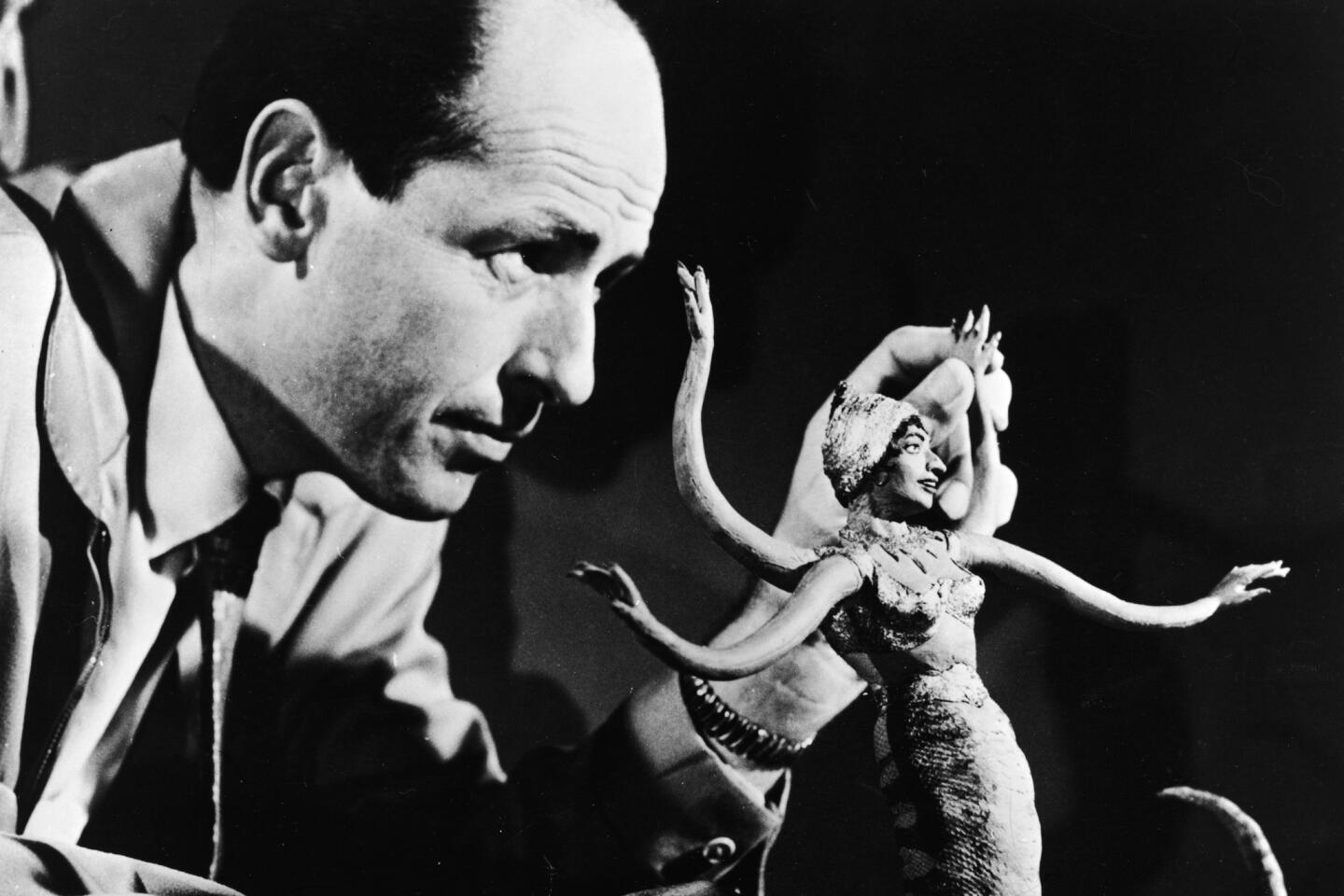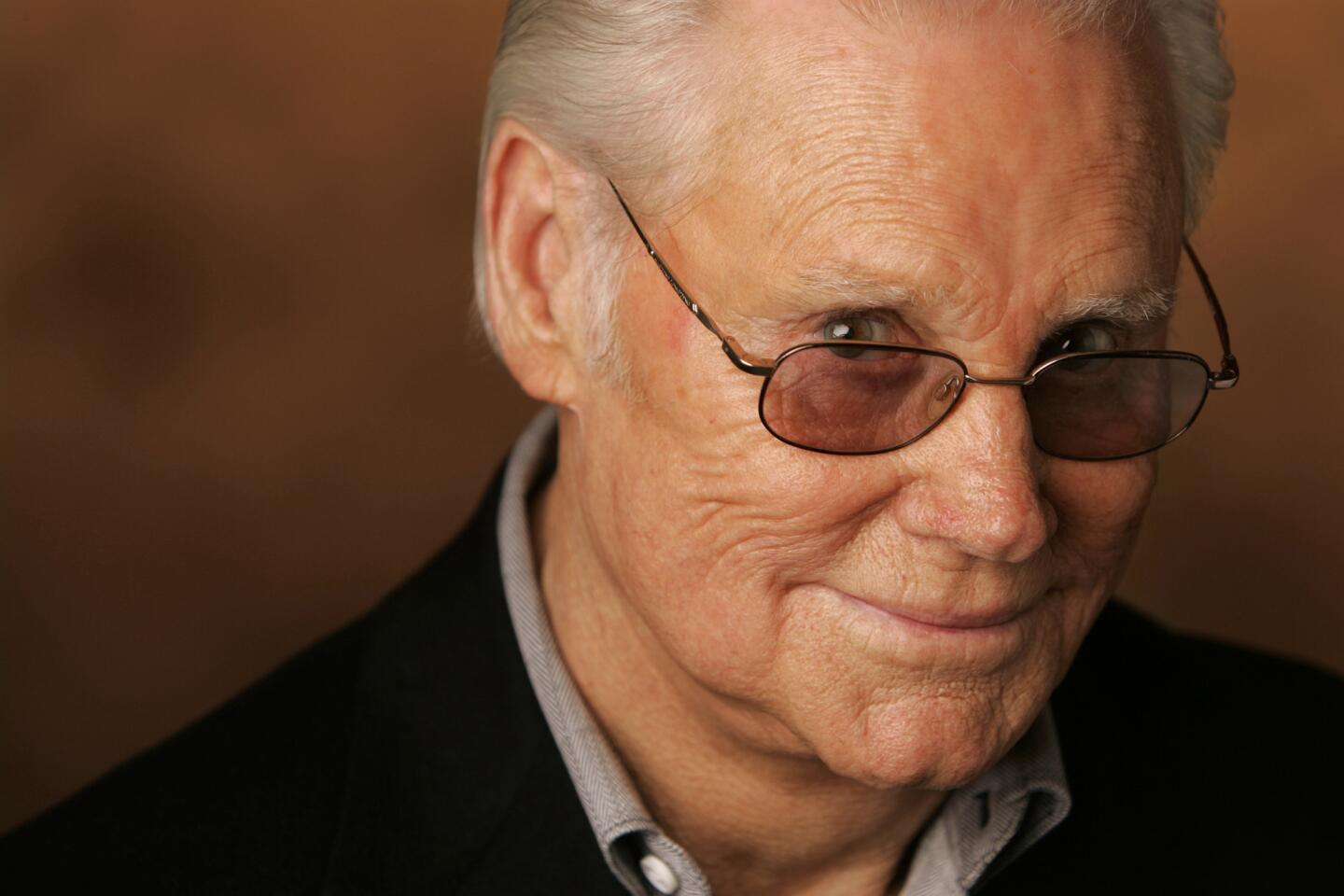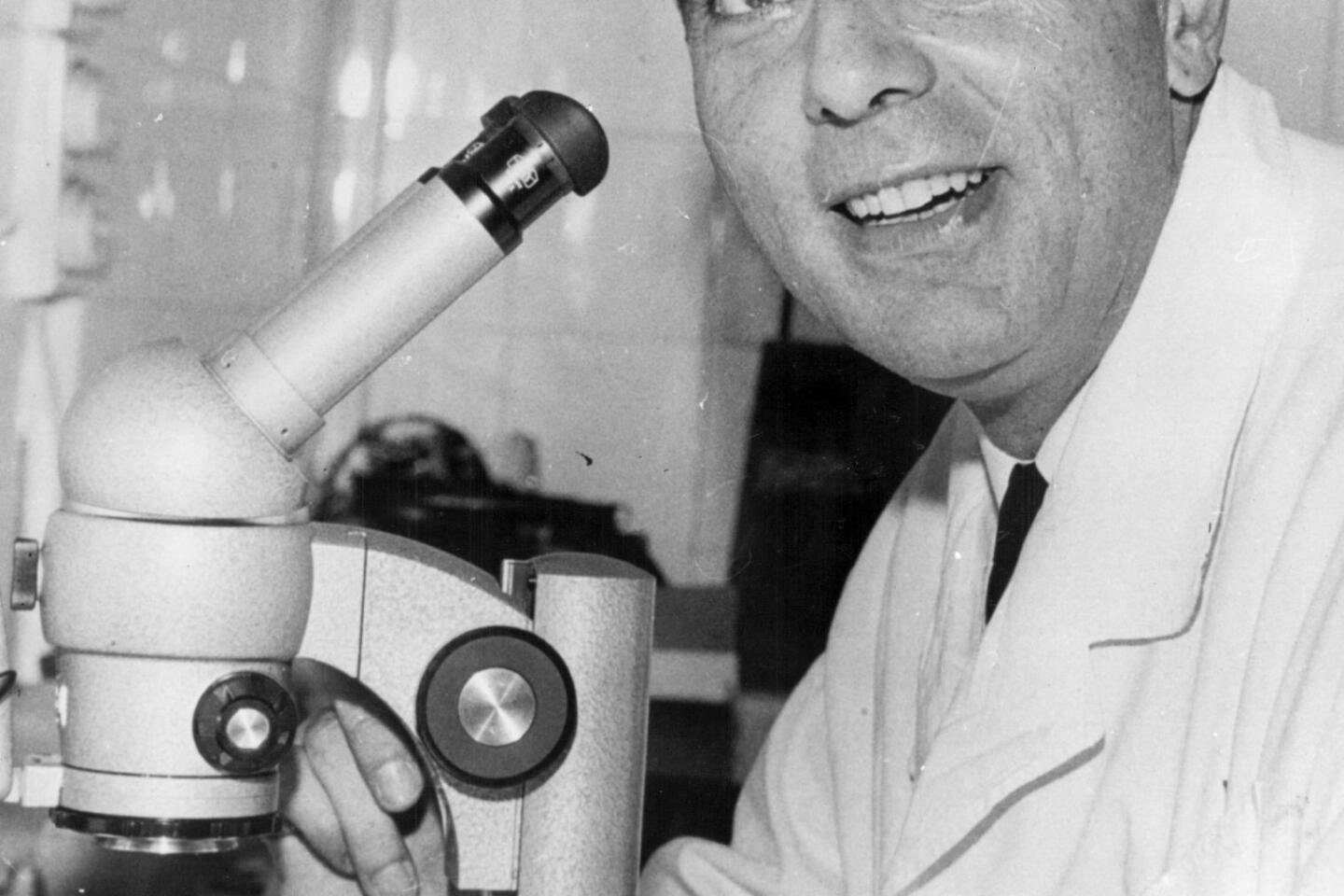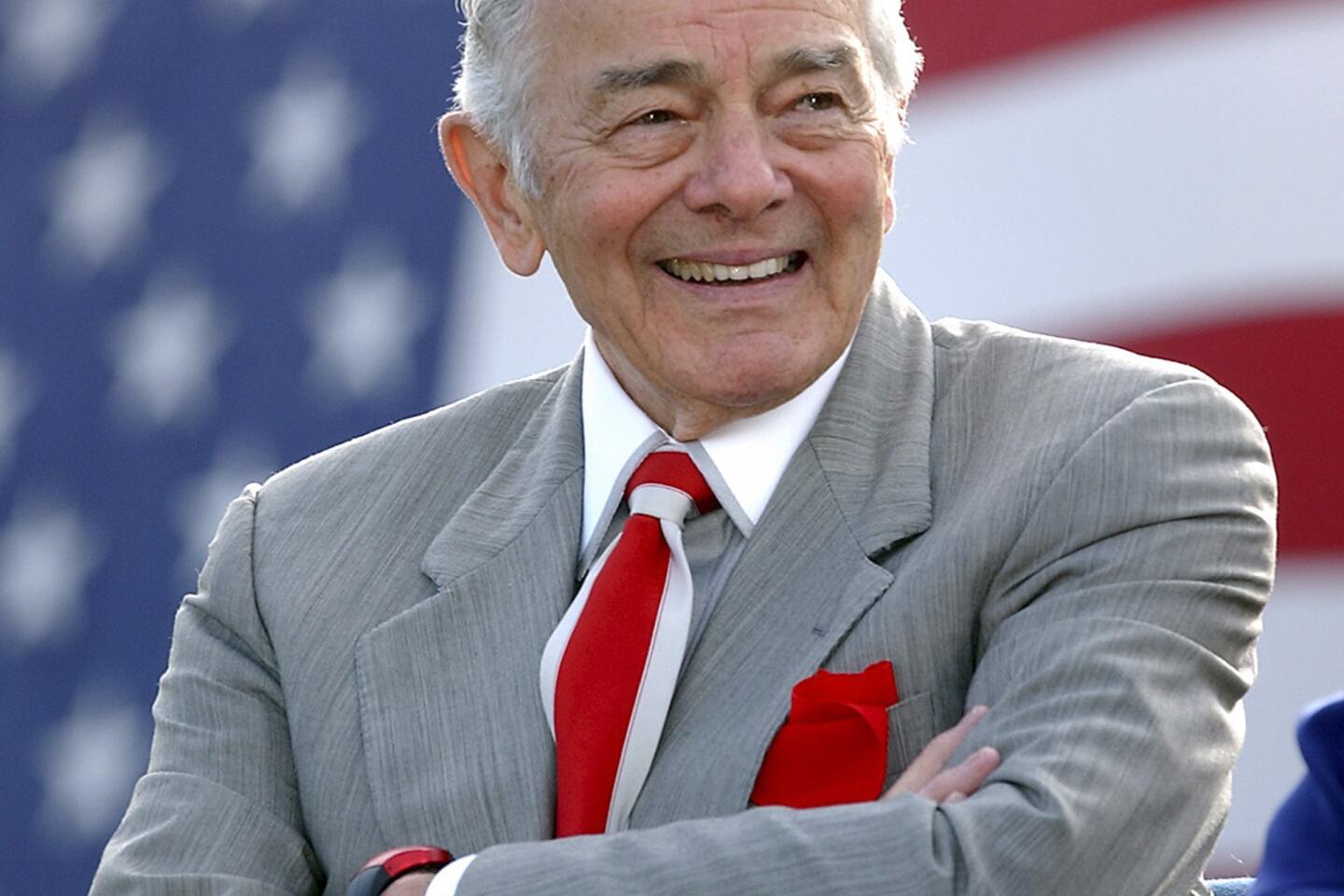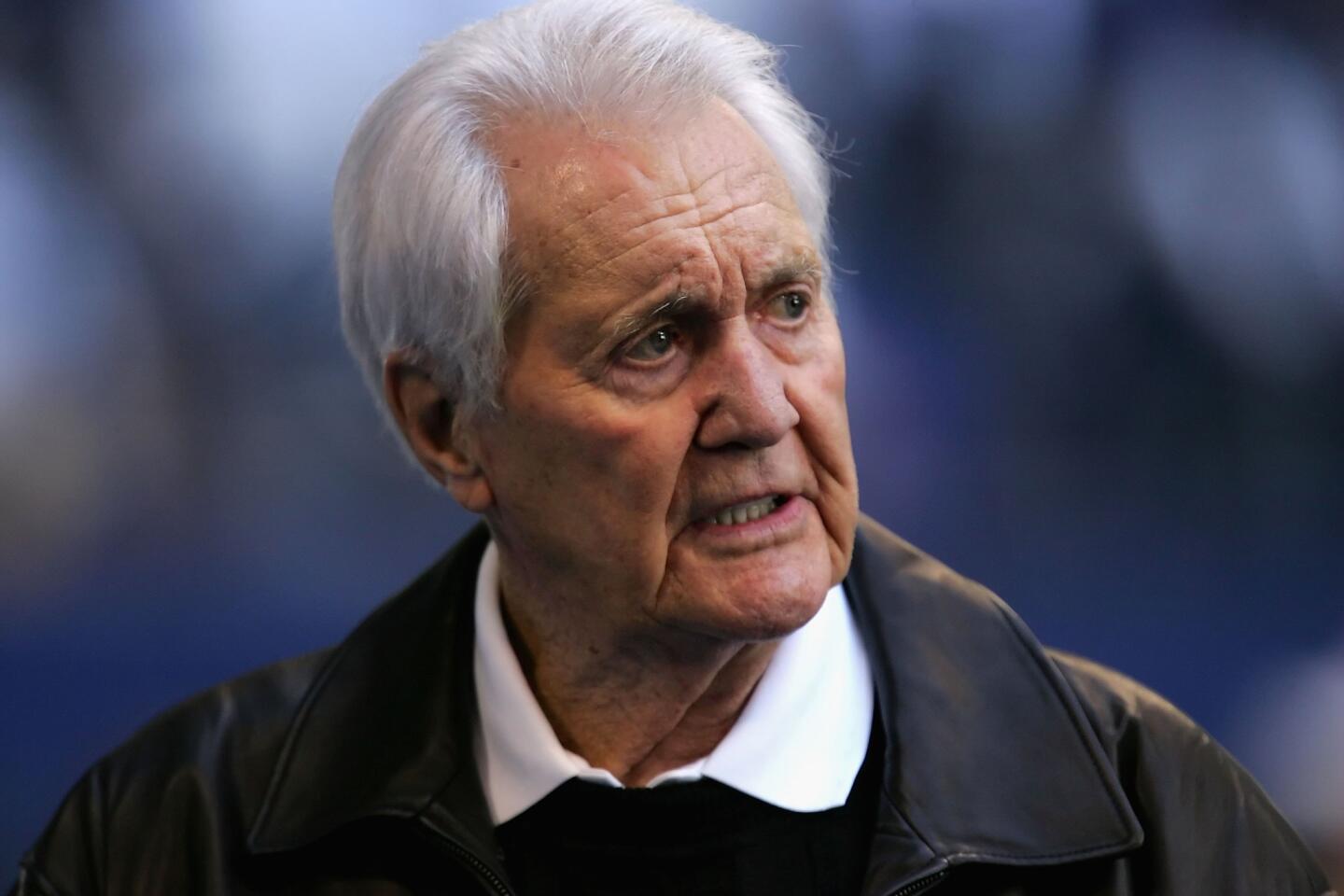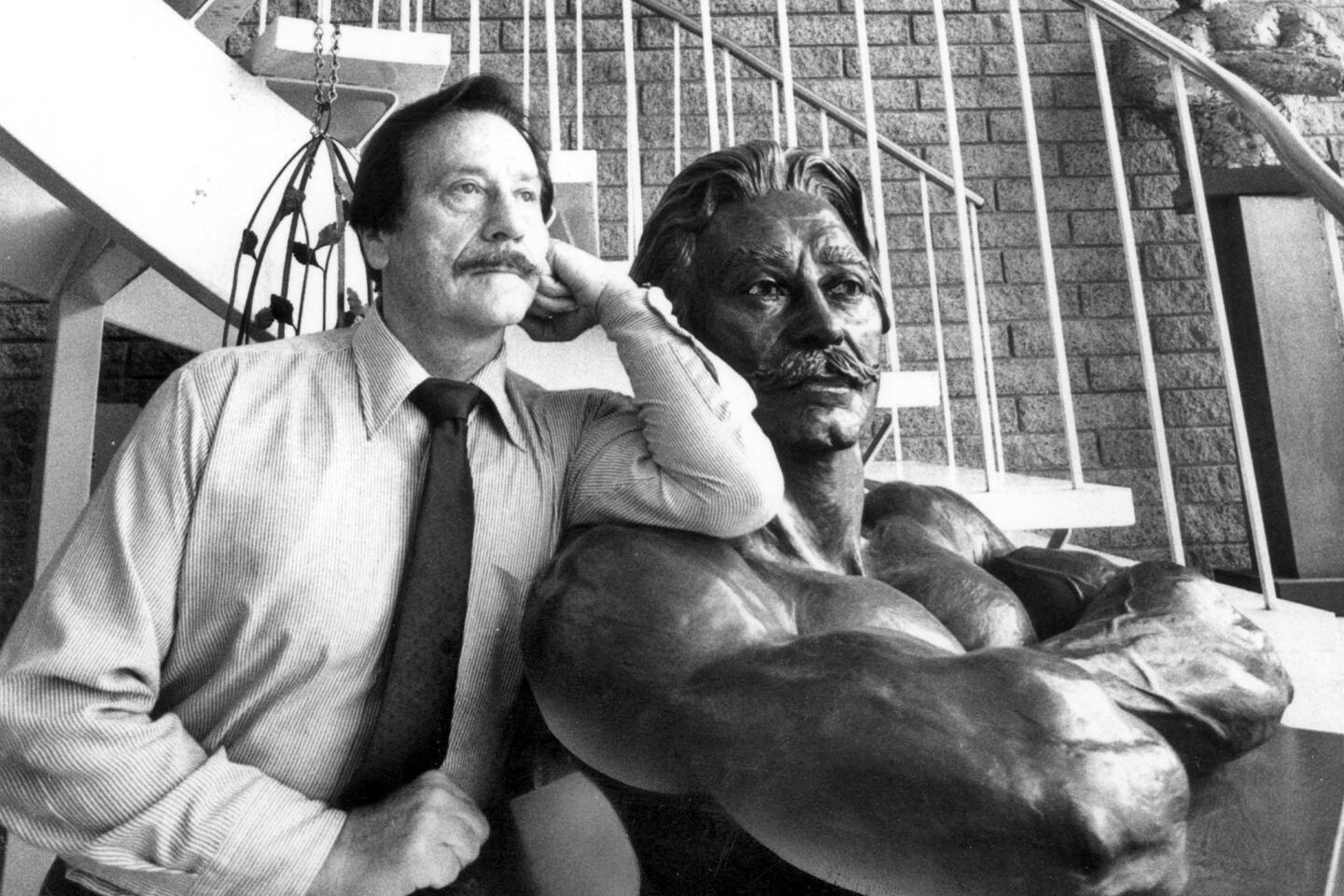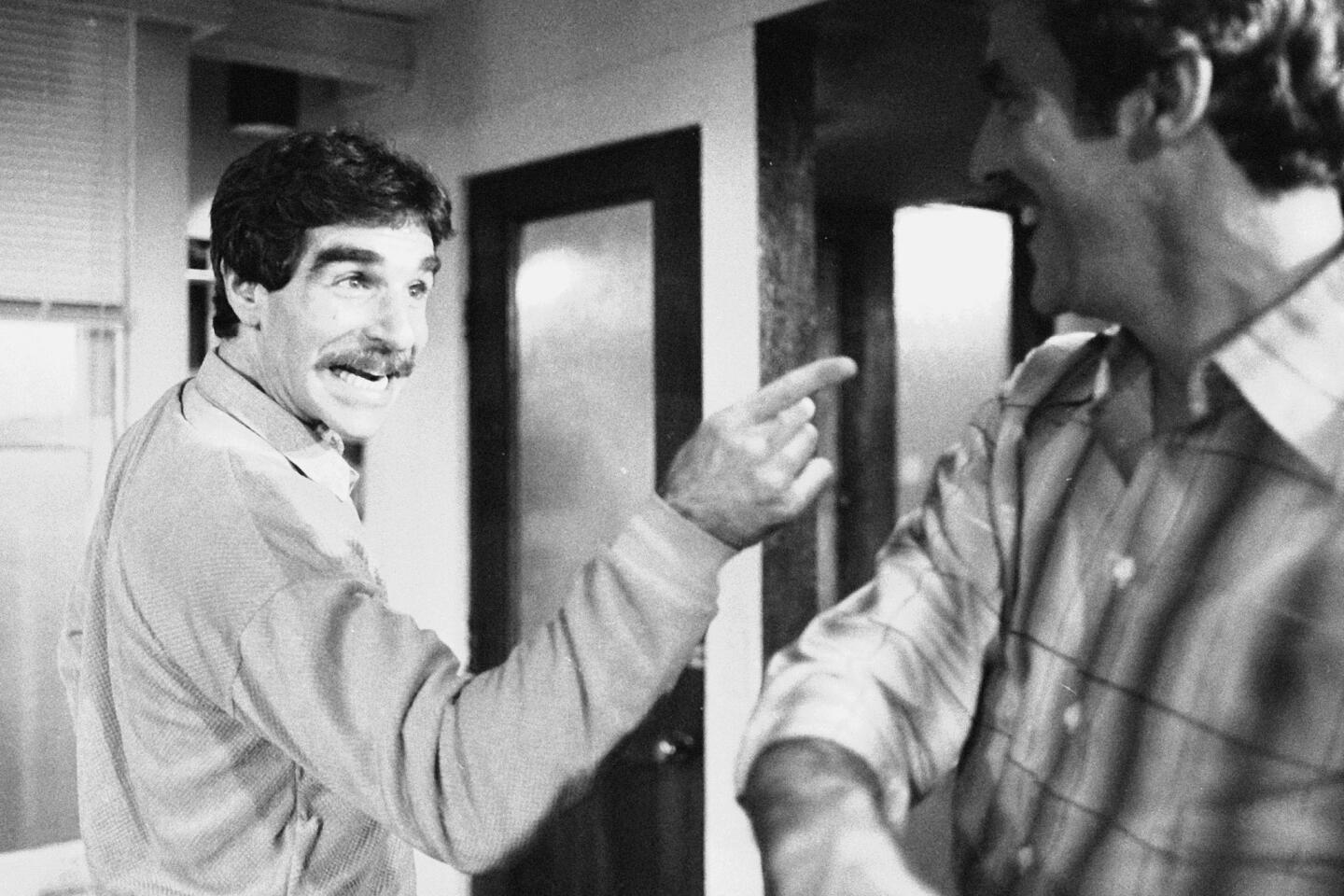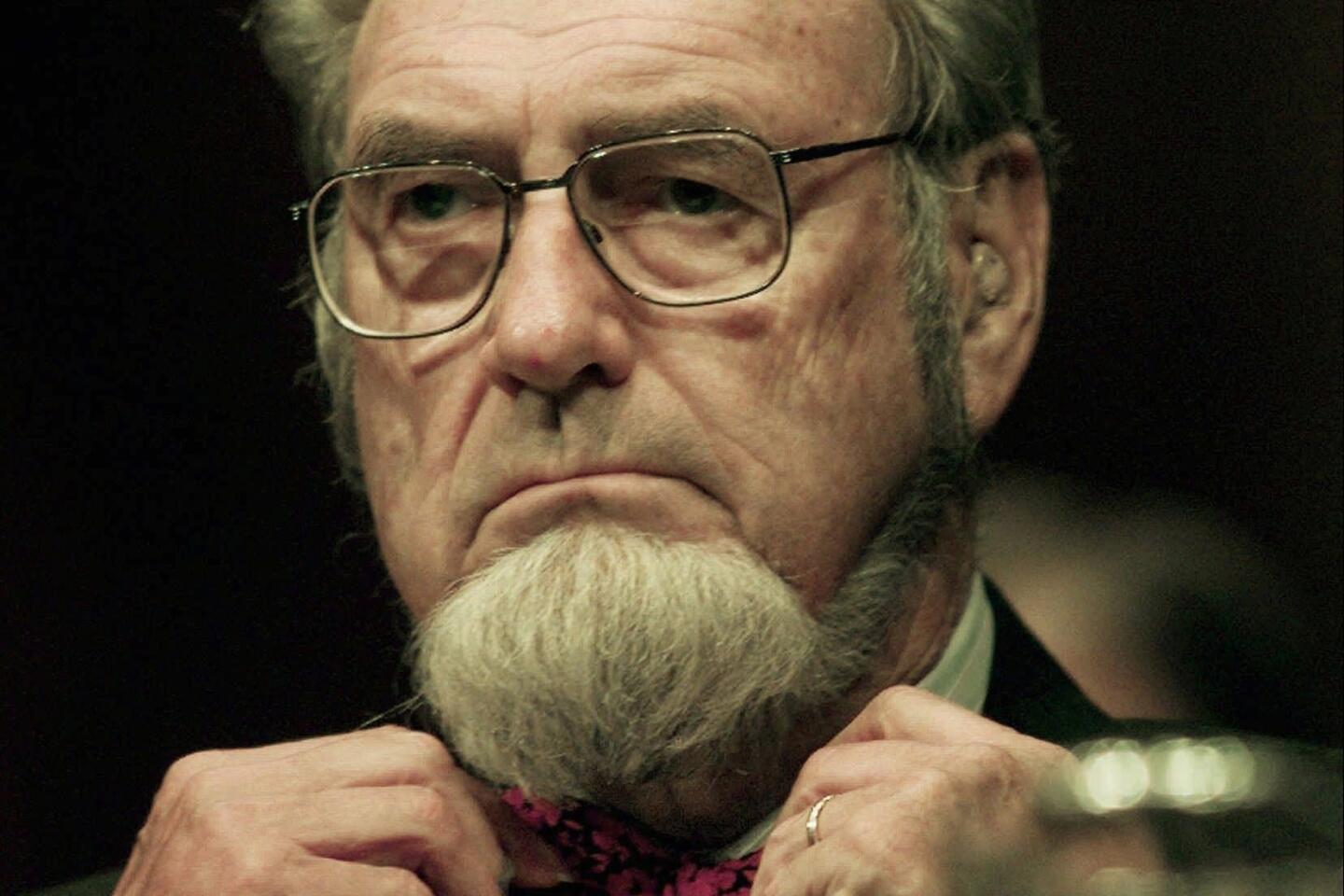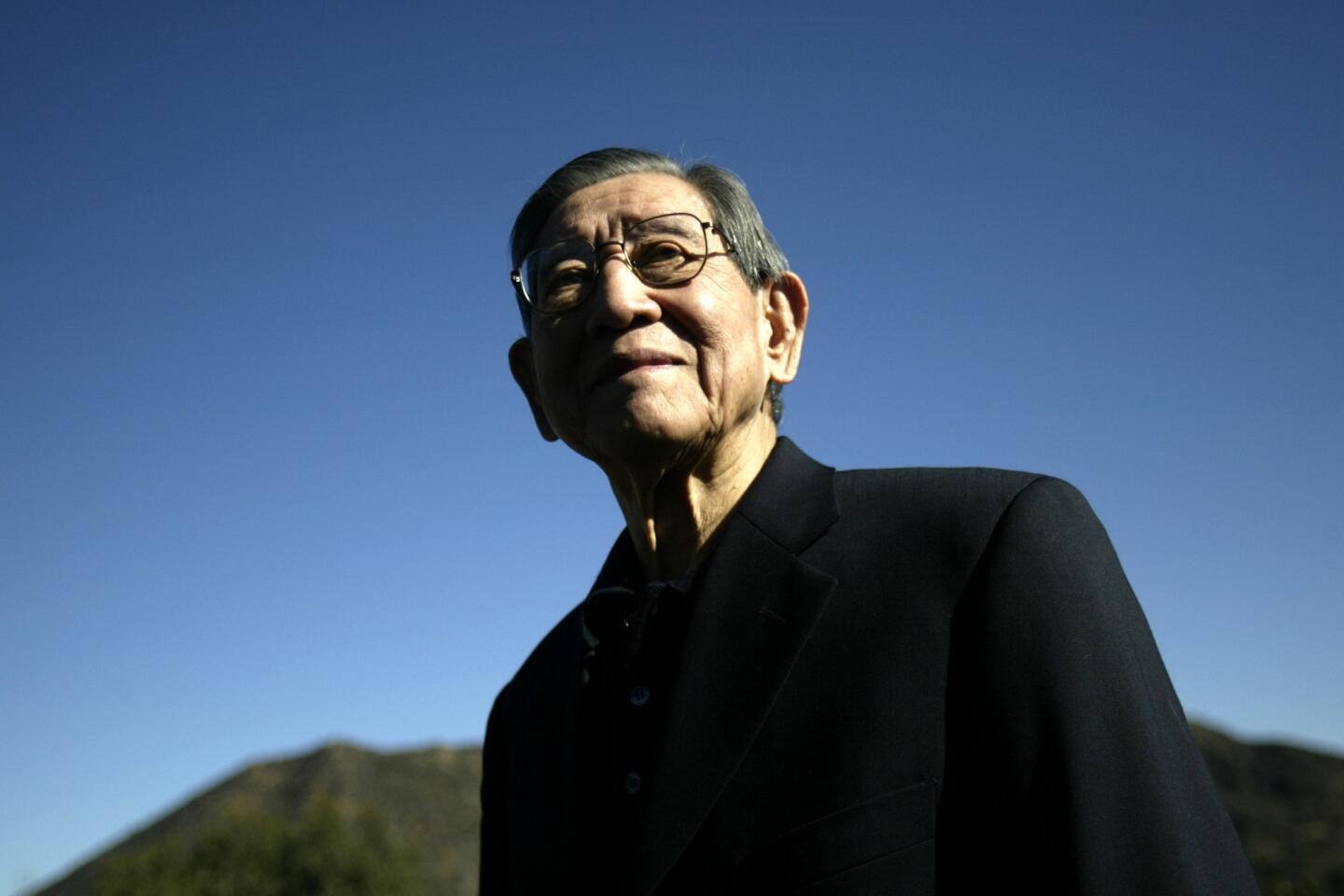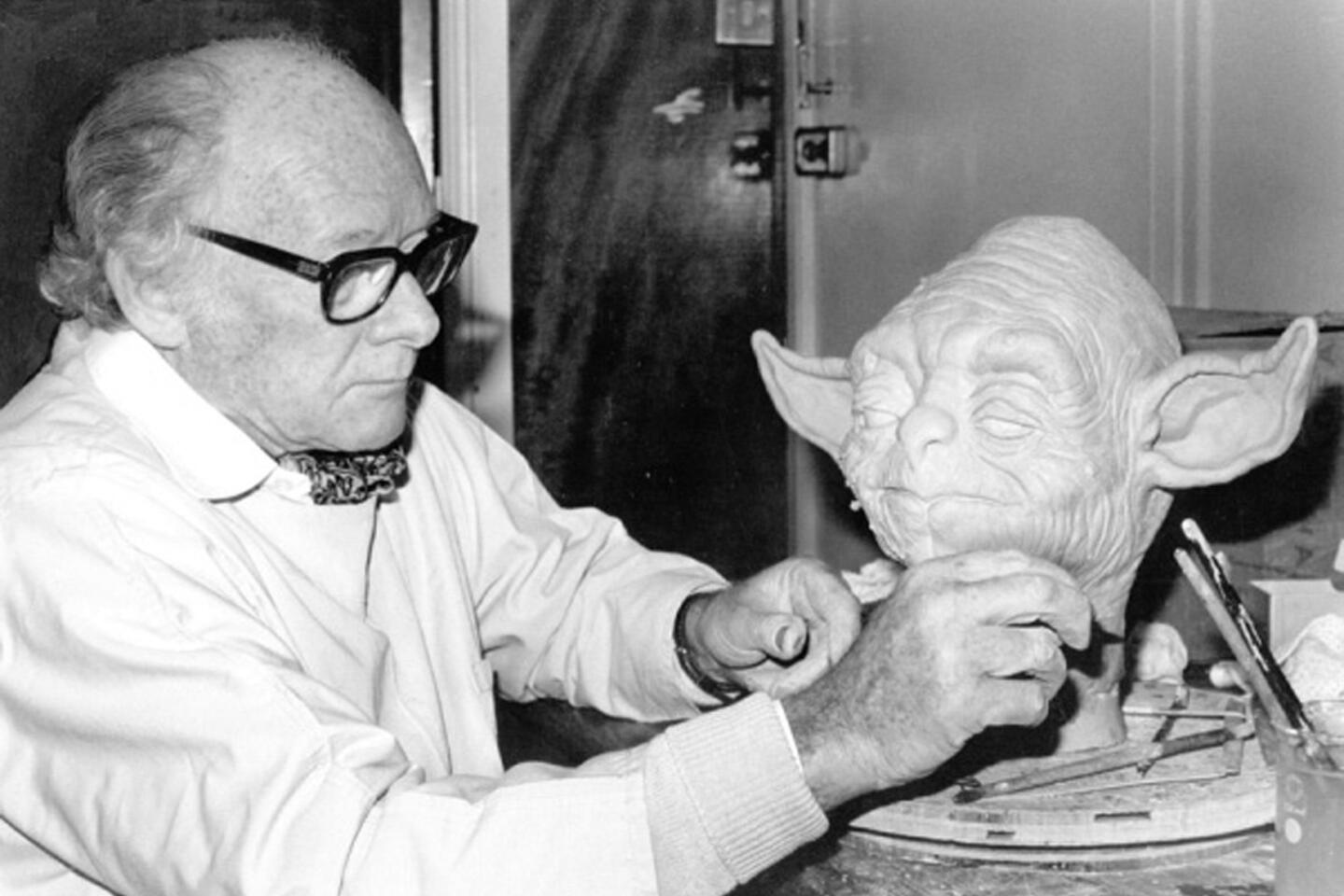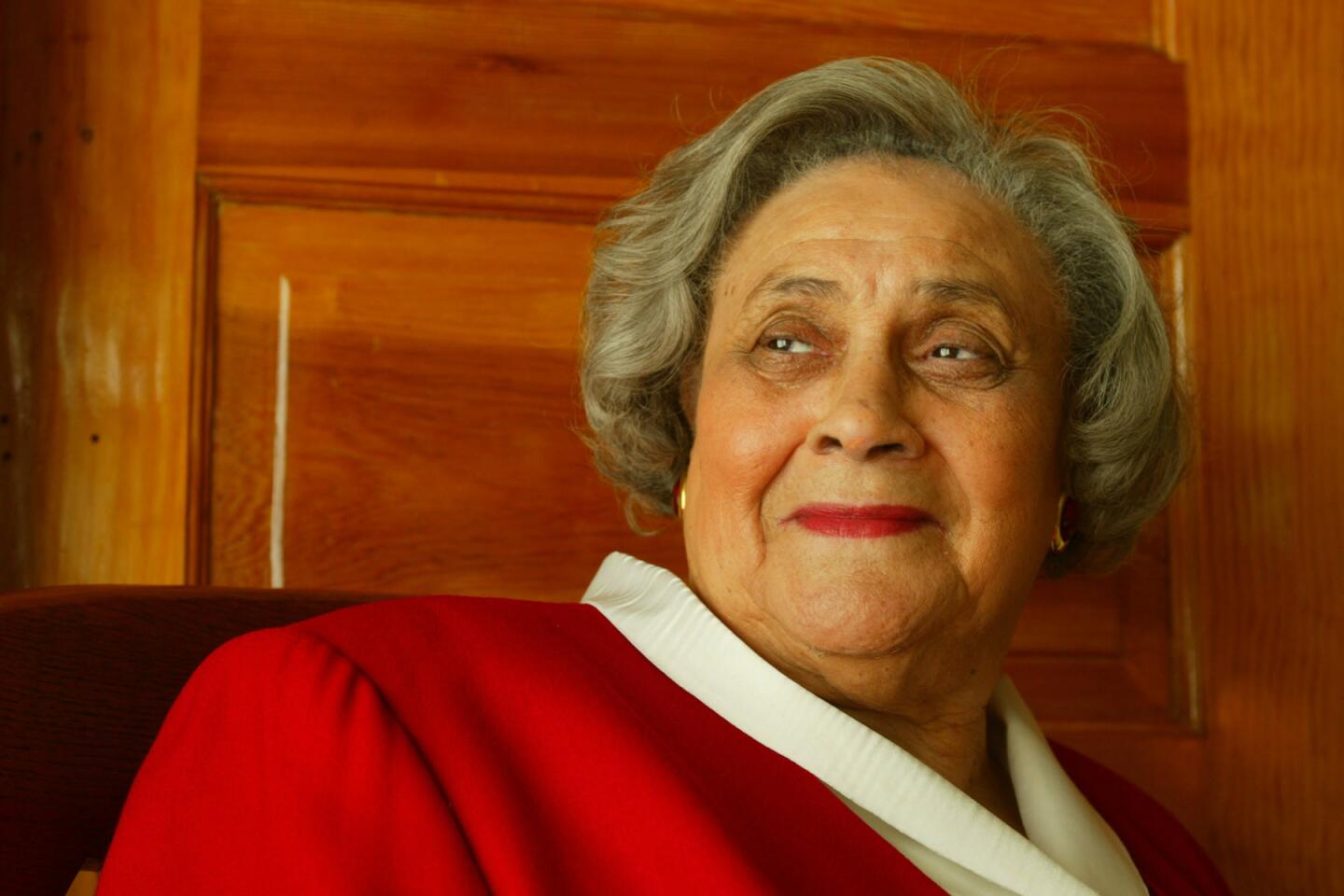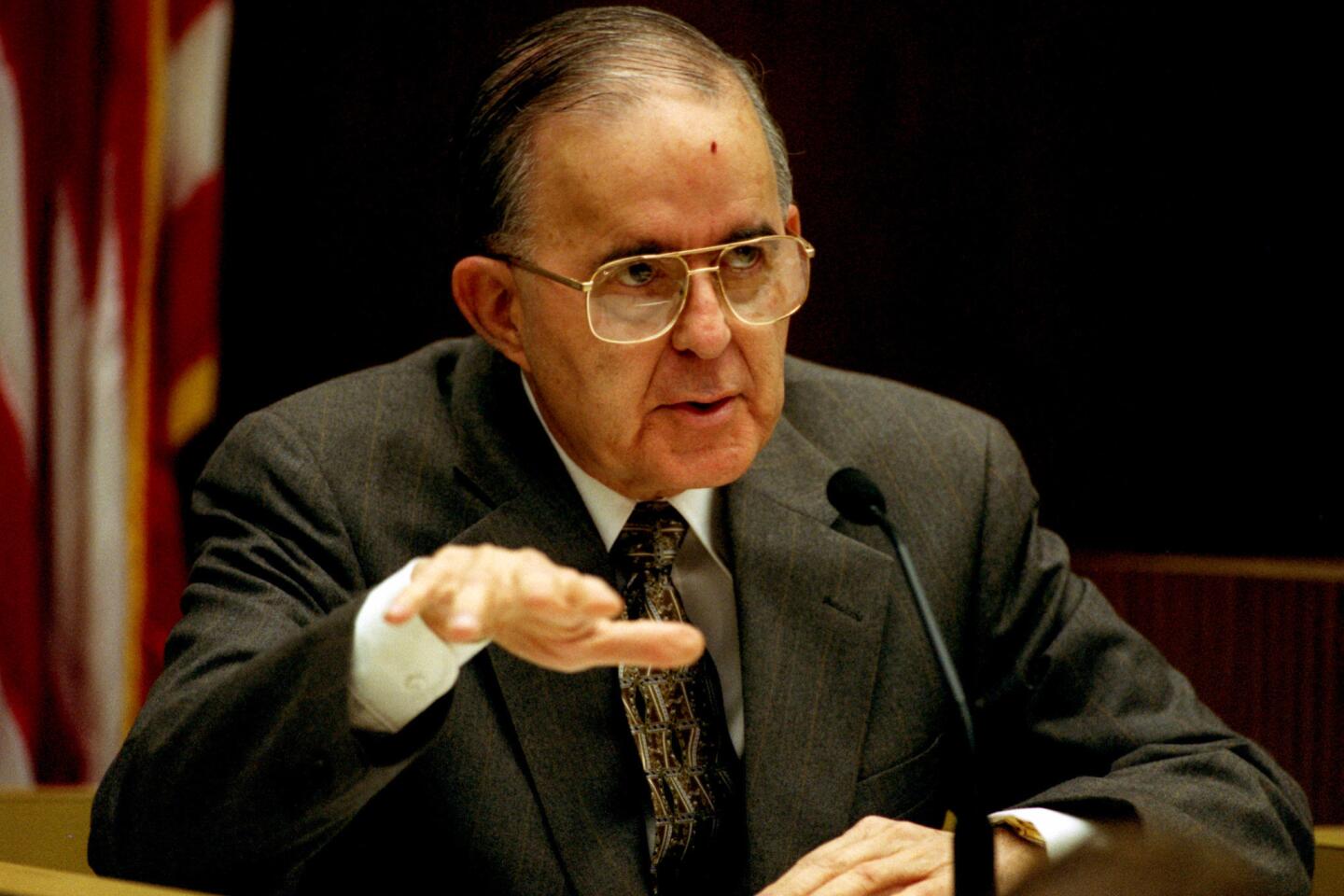Frank Lautenberg dies at 89; Democratic senator from New Jersey
- Share via
WASHINGTON — Sen. Frank R. Lautenberg of New Jersey, the last World War II veteran in the Senate and a stalwart Democrat who led congressional battles over three decades to toughen gun laws, ban smoking on planes and crack down on drunk driving, died Monday at age 89.
Lautenberg, who was the Senate’s oldest member and his state’s longest-serving senator (28 years, 5 months and 8 days), died of complications from viral pneumonia at New York-Presbyterian/Weill Cornell Medical Center, his office announced. He was treated for stomach cancer in 2010.
New Jersey Gov. Chris Christie, a Republican, is expected to appoint a replacement, but Democrats are expected to push for him to call an election for this November rather than wait for voters to choose a successor in the fall 2014 election.
If Christie appoints a Republican, the balance of power in the Senate would shift to 52 Democrats, 46 Republicans and two independents who now caucus with the Democrats. Democrats will still control the chamber, but the margin will be slimmer.
Secretary of State John Kerry, a former Senate colleague, called Lautenberg “above all, a person of huge personal conviction.”
Even when Lautenberg was weakened by chemotherapy, “he was still down there on the floor of the United States Senate fighting on every environmental debate late into the night,” Kerry recalled. A few weeks ago, an ailing Lautenberg showed up at a Senate committee meeting in a wheelchair to provide a critical vote to advance President Obama’s nomination of Gina McCarthy to be EPA administrator over Republican opposition.
Lautenberg, a highly successful businessman, was first elected to the Senate in 1982 and retired after three terms in 2000. He hit the stump again two years later, at age 78, at the urging of desperate fellow Democrats after the scandal-plagued Democratic incumbent, Robert Torricelli, bowed out of the contest.
Earlier this year, Lautenberg announced plans to retire when his term expired in January 2015. Cory Booker, the mayor of Newark, has been the leading Democratic contender to win the 2014 election to replace him.
If Christie appoints a replacement to serve out the remainder of Lautenberg’s term, rather than call a special election for this fall, Democrats will almost certainly challenge him in court, said Rutgers University law professor Frank Askin, because they are eager to fill the seat sooner. Allowing a Republican to serve out the term might provide a GOP incumbent a possible advantage in the 2014 race.
Christie didn’t signal his plans Monday, but he paid tribute to Lautenberg at a news conference in Trenton. “We had some pretty good fights,” Christie said. “But never was Sen. Lautenberg to be underestimated as an advocate for the causes that he believed in.”
Lautenberg championed gun control, including writing a 1996 measure denying guns to people convicted of misdemeanor domestic violence.
Sen. Pat Toomey (R-Pa.) noted that one of Lautenberg’s last public acts was to return to the Senate floor April 17, “even though he was not feeling well,” to vote for an ill-fated measure to strengthen background checks for gun purchases.
Lautenberg was the Senate author of the 1984 bill that set the national 21-year-old drinking age. He later led a successful effort to use federal highway funds to pressure states into lowering the drunk-driving standard to a blood-alcohol content of 0.08%. All 50 states adopted the standard.
In recent weeks, he announced plans to ratchet up pressure on states with legislation requiring special ignition locks for convicted drunk drivers. The device requires them to test their breath for alcohol before the car can start.
Lautenberg also pushed for funding for improved rail service, especially in the Northeast corridor. The station at Secaucus Junction, N.J., is named for him.
Born on Jan. 23, 1924, in Paterson, N.J., to immigrant parents from Russia and Poland, Lautenberg enlisted in the military at 18 and served in the Army Signal Corps in Europe during World War II.
After attending Columbia University on the G.I. Bill, he went on to make a fortune with the payroll services company Automatic Data Processing, now known as ADP.
In a 1998 Los Angeles Times interview, he described the “culture shock” of going from the corporate world to Capitol Hill. He quickly learned, he said, that “the rules of business don’t necessarily apply.”
“The typical CEO does some of the listening, a lot of talking and almost all the decision-making,” he said. “You get [to Capitol Hill] and find out that lots of people compete to do all the talking, you do a helluva lot of listening, and very little decision-making.”
Lautenberg is survived by his wife, Bonnie Englebardt Lautenberg; six children and 13 grandchildren.
More to Read
Start your day right
Sign up for Essential California for the L.A. Times biggest news, features and recommendations in your inbox six days a week.
You may occasionally receive promotional content from the Los Angeles Times.

